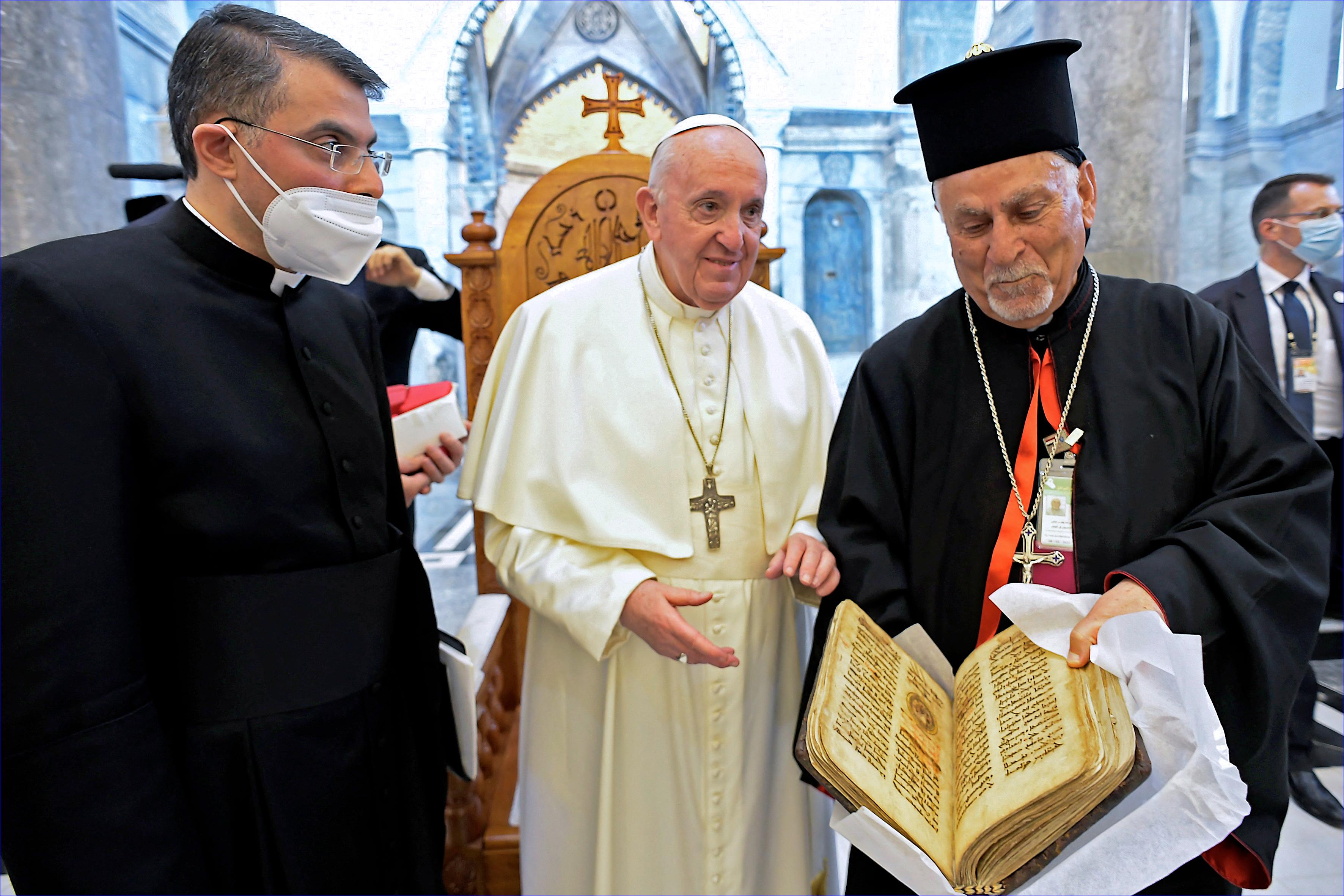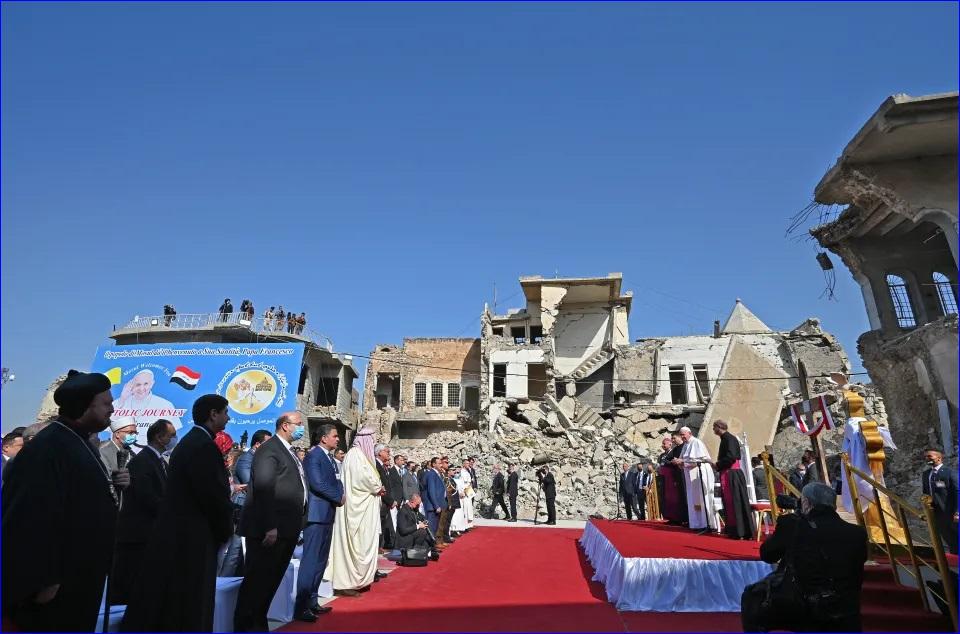


In the middle of the ruined square where the crowd has gathered stands a cross made from the wood of a destroyed church. Beside it stands Pope Francis. At 84, the Argentine pontiff has not shied away from bad security signals. A month earlier, Baghdad had been hit by a suicide bomber. And three weeks earlier, rockets had fallen in the Erbil region, east of Mosul.
But the head of the Catholic Church had no intention of reliving the disappointment of his predecessor, John Paul II, who reluctantly had to abandon his historic trip to Iraq to inaugurate the Great Jubilee of the Year 2000 in the land of Abraham, the father of believers.
A journey of compassion
For a land devastated by the American invasion of 2003, for a traumatized Iraqi people and a million exiled Christians, the Pope is determined to carry out his journey of compassion, whatever the cost.
"How cruel it is that this country, the cradle of civilization, should have been afflicted by so barbarous a blow, with ancient places of worship destroyed and many thousands of people -- Muslims, Christians, Yazidis, who were cruelly eliminated by terrorism, and others -- forcibly displaced or killed!" the Pope said indignantly that morning in Mosul.

"Today, however, we reaffirm our conviction that fraternity is more durable than fratricide, that hope is more powerful than hatred, that peace is more powerful than war. This conviction speaks with greater eloquence than the passing voices of hatred and violence, and it can never be silenced by the blood spilled by those who pervert the name of God to pursue paths of destruction," added the Pope who had signed his encyclical Fratelli tutti ("All brothers") five months earlier at the tomb of Francis of Assisi.
Restoring not just buildings, but human bonds
After Mosul, the Pope flew by helicopter over the Nineveh plain, this fertile land that saw more than 100,000 Christians flee with the sudden invasion of ISIS in the summer of 2014. In Qaraqosh, a martyred city where the Syriac Catholic cathedral served as a shooting gallery for the Islamists, the Pope was welcomed like a messiah.
"I have looked forward to this time together," said the pontiff, who had closely followed the ordeal of the inhabitants, forced to abandon their homes in the summer heat. To these men and women, who have all experienced this exodus, the Pope proposed to "restore not just buildings but also the bonds of community." And to encourage them to forgive.
Later, in the stadium of Erbil, capital of Iraqi Kurdistan, the Pope warned against the "temptation to seek revenge."
A historic meeting with the Grand Ayatollah
The Pope's trip was not just a consolation for Christians. It was also seen as a gesture of friendship to Shiite Muslims.
After his 2019 trip to the United Arab Emirates to sign a declaration on human brotherhood with the Grand Imam of Al-Azhar, the Sunni Ahmed el-Tayeb, Pope Francis now visited the 90-year-old Grand Ayatollah al-Sistani in his modest home in Najaf, the holy city of Shiite Islam that houses the mausoleum of Imam Ali.
"This meeting did my soul good," said the pontiff soberly on his return flight, at which point the photo of the ayatollah in black and the pope in white had already gone around the world.
A few minutes after the meeting, Pope Francis found himself in the heart of the plain of Ur for an interfaith ceremony. There, in the middle of the desert, the cradle of Abraham, he fulfilled the dream of John Paul II, and cried out:
From this place, where faith was born, from the land of our father Abraham, let us affirm that God is merciful and that the greatest blasphemy is to profane his name by hating our brothers and sisters. Hostility, extremism and violence are not born of a religious heart: they are betrayals of religion. We believers cannot be silent when terrorism abuses religion.

or register to post a comment.